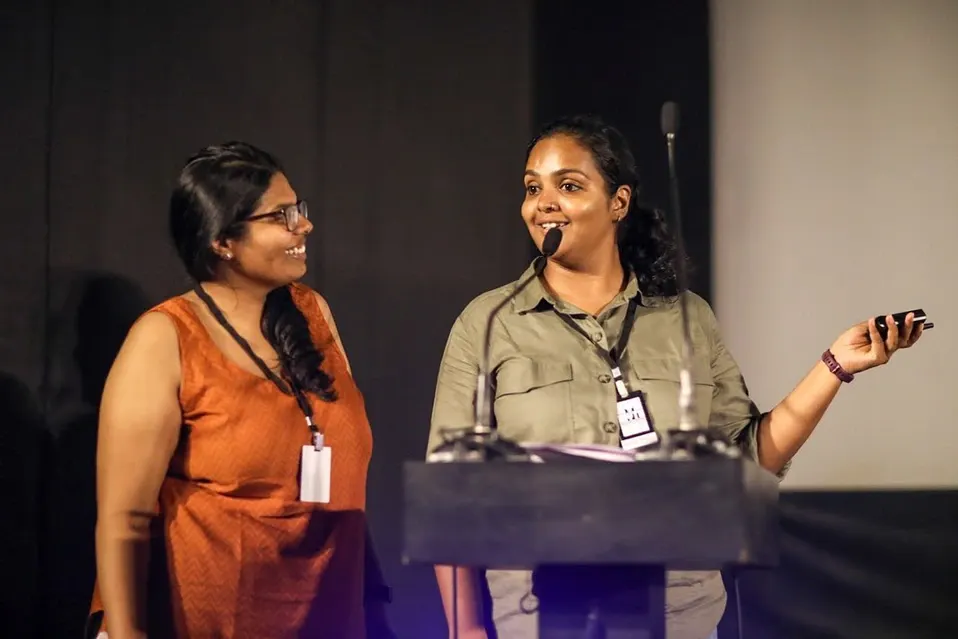The Perspectives Series Vol 2: Anusha Murthy & Elizabeth Yorke

Originally published on August 16, 2020.
In your own words please introduce yourself and your work.
We (Anusha Murthy and Elizabeth Yorke) in a foresight class at the Food Innovation Program, were asked to share our sources for news and signals from the Indian food system. We thought long and hard. Everyone in India was talking about food and seeing it through different lenses — newspapers, cooking blogs, VC’s, scientists. We ourselves (Anusha has a background in engineering and Elizabeth is a trained chef) had different opinions and points of view.
The information to understand the Indian food system looked scattered, disconnected and conversations were largely in silos. We found ourselves poring through 200+ articles in a week to sift out “signals” that we thought would point to a particular food future (foresight thinking).
We decided to put these links together in the form of a newsletter to understand for ourselves and share with the world the expanse of the Indian food system and encourage thought on what the future could/should be like?
Through a series of events, conversations, research and projects, Edible Issues is growing to be a platform for conversation and engagement with the Indian Food System.
What does “sustainable food” and "a resilient food culture" mean to you?
India is a country of multiple parallel worlds all living side by side. You could find a set of millenials who invest in a zero-waste lifestyle and only eat organic produce and their neighbours could be a family of 6 who is struggling to feed themselves at least twice a day. So what does sustainable even mean when we live in a space of inequality and disparity when it comes to a primary need -- food? For us, a resilient food culture is one of food sovereignty and food choice.
We also live in a country of beautiful diversity and religion. And these are very well represented in our food. So a resilient food culture also becomes that of tolerance to each community's food.
What are your visions/dreams for a more sustainable, responsible and resilient food culture?
Our vision/dream of a resilient food culture is where everyone is respectful of each other's food citizenship (the practice of engaging in food-related behaviours that support, rather than threaten, the development of a democratic, socially and economically just, and environmentally sustainable food system. JL Wilkins, 2005).
How is your work connected to this vision?
Through Edible Issues, we aim to talk about the food system that is now, and also explore possible food futures to engage discourse on what we might want or not want a food system to be.
We try to look at India’s foodways as holistically as possible and encourage inter-community and inter-industry conversations that can nudge us as stakeholders in the food systems towards more mindful food behaviours, whether it’s individual, community or organization focused.
In your eyes, where lies the biggest potential for us as consuming humans to impact change and help shape a more sustainable food culture?
The effect of small changes that compound over time, is magical. We believe that the biggest potential lies in small everyday changes that we can make in how we shop, make, and consume food. Eating seasonally and locally is a great start. Developing the culinary confidence to cook more at home, is an important but very underrated tool in shaping a sustainable food culture. But one tool that we strongly believe in is having simple conversations.
Conversations either with farmers in the market, vegetable vendors or restaurateurs about food and its origin is the first step to anybody understanding more about the food system. At Edible Issues, we focus on making that happen.
Where can people learn more about your work and engage with it?
Our Instagram channel @edible_issues (Abre numa nova janela) if you need to have a quick conversation. We send out a fortnightly newsletter, which you can subscribe to here (Abre numa nova janela). All of our archives and articles are also available on our website (Abre numa nova janela) and our Medium channel (Abre numa nova janela). You can also write to us at edibleissues@gmail.com.
Where else and what would you encourage people to go and learn?
For local food systems, it really depends on where people are based. The best place to learn would be in your respective supermarkets or farmers markets. Look at what comes in and what goes out, observe the variety of vegetables and start asking questions. Just being more observant and aware of the food we grow and consume would be the best way to learn more about the food system. As for resources online, there are a ton of great ones. We really like the resources section on Civil Eats. (Abre numa nova janela) And for books, you guys put out a great list (Abre numa nova janela)!
Anything else you’d like to share?
Thinking about food in terms of the planet and community is an act that comes with great privilege - of economy, society, and culture. Not all of us have the privilege to make food choices. So if you do have it, use it wisely and vote with your forks.


